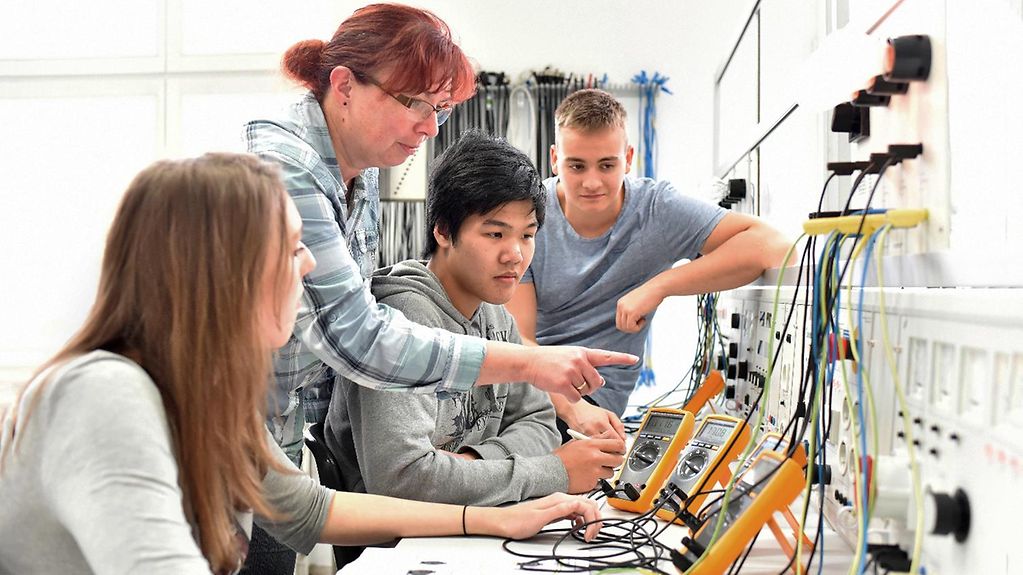Alliance for Training
The new Alliance for Training 2019-2021 aims to make the successful model of Germany’s dual vocational training system even more attractive. It has been signed by the German government, the Federal Employment Agency and the federal states.
2 min reading time

The new Alliance aims to further future-proof vocational training in Germany and use it as a vehicle for integration
Photo: Getty Images/iStockphoto
In some branches and some parts of Germany there is a tangible shortfall of skilled workers: companies are finding it difficult to recruit trainees. Yet at the same time, some young people are desperately seeking a traineeship. Currently, almost 134,000 young people still have no traineeship lined up. This is where the Alliance for Training 2019-2021 comes in.
The aim is to bring together companies and young people, and to ensure that young people complete their training, so that ideally everybody has a vocational qualification.
All stakeholders need to work together
As the Alliance agreement was signed, Federal Minister for Economic Affairs Peter Altmaier explained, "Dual vocational training is key to ensuring that our companies, especially medium-sized companies, have a ready supply of the skilled staff they need."
Federal Minister of Labour Hubertus Heil announced better support for trainees, including labour-market-policy services. "That is in everybody’s best interests because we need well trained young people."
Federal Education Minister Anja Karliczek underscored, "Vocational training offers young people a sound foundation for a successful career with a wide spectrum of career development opportunities. We want to carry forward this success story within the Alliance for Training."
The new agreement builds on the "Alliance for Training 2015-2018". Representatives of the realms of politics, industry and the trade unions worked together under the auspices of the national compact for training and junior skilled workers.
An equally valid alternative to an academic degree
The signatories stress that vocational training and an academic degree are equally valid and equally valuable. Dual vocational training offers modern professional development, attractive career paths and opportunities to gain international experience.
Fostering mobility among young people
One priority of the agreement is to make young people more mobile when they seek traineeships. To this end it is to become easier for trainees to move to a new region and find their feet there. One option, for instance, is nationwide local public transport tickets and assistance to find accommodation.
Expanding "assisted training"
In addition, the new agreement provides for developing what is termed assisted training, opening it up to more young people, and making it a permanent scheme. The German government provides support under this scheme in the form of language courses or additional knowledge transfer. Companies are released from administrative and organisational work in conjunction with trainees. This is a big help for small and medium-sized companies in particular.
More career orientation at schools
Career orientation services are to be extended at general education schools. The Federal Employment Agency intends to offer its services to younger school pupils too. Industry is to ensure a sufficient number of internships, to give young people an insight into practical work inside companies. Meanwhile, the trade unions have pledged to provide more support and advice for young people.